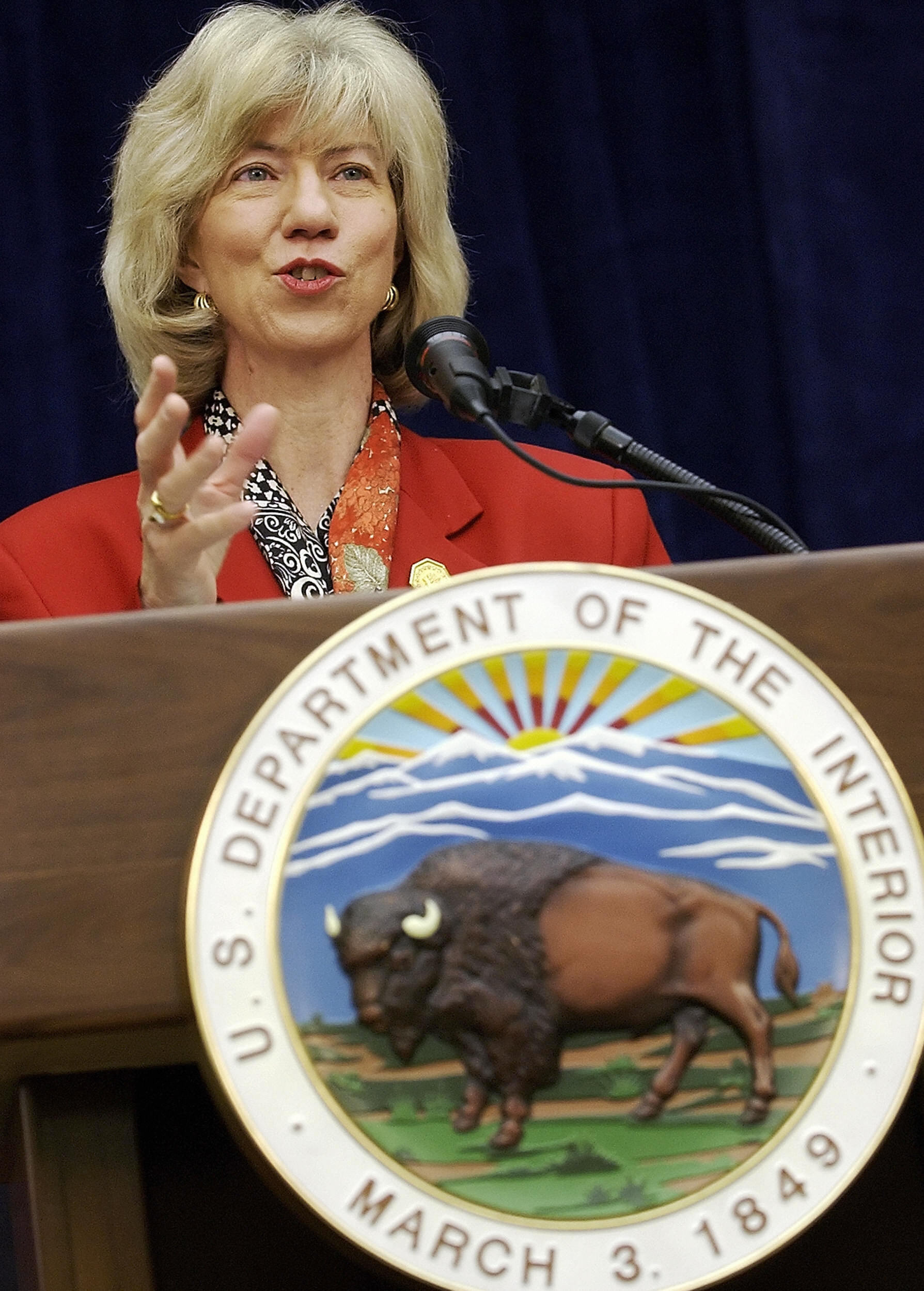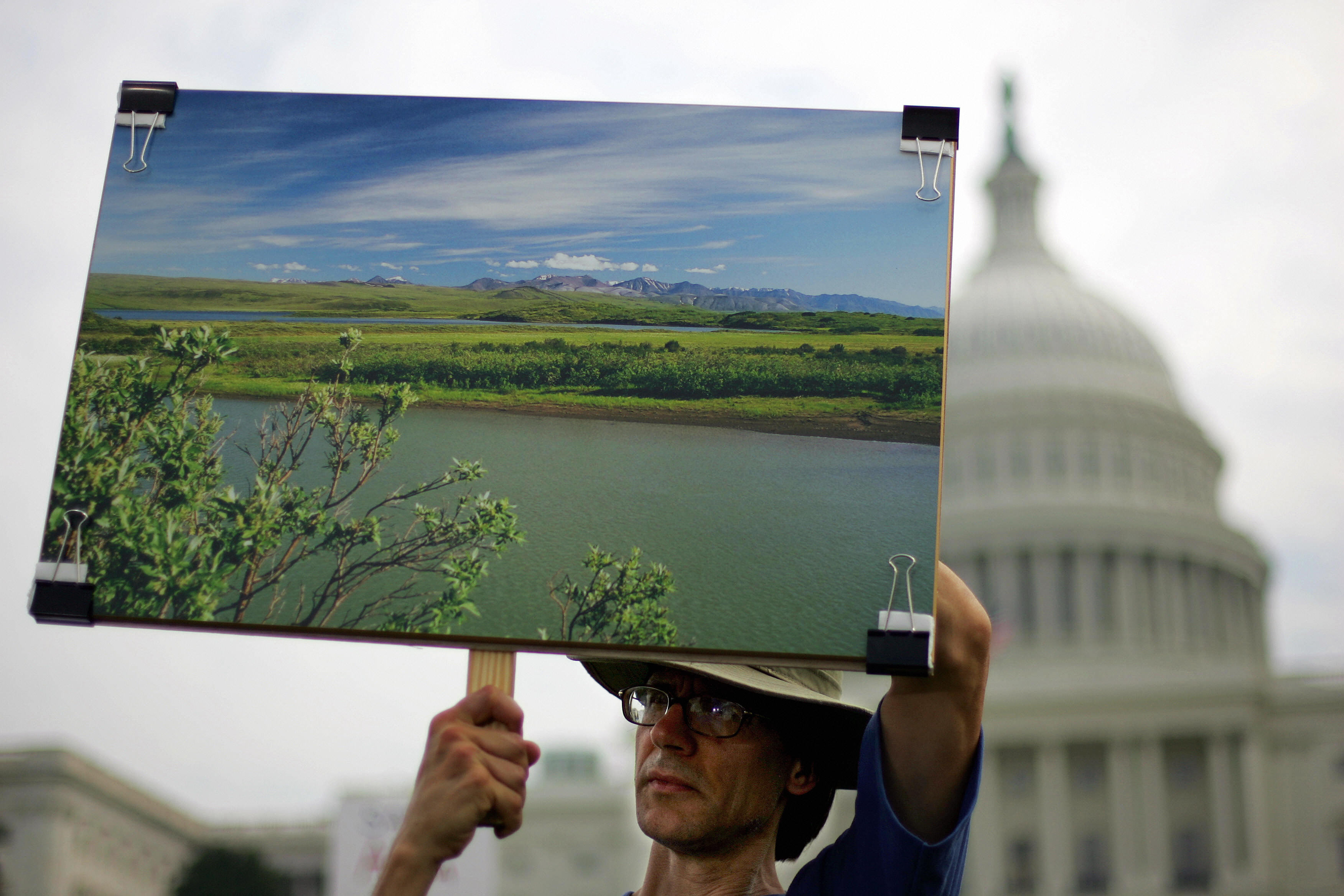On Thursday, May 18th, the lawyer and lobbyist David Bernhardt will sit down before a panel of United States senators and try to convince them that he is fit to serve as the next deputy secretary of the Department of the Interior. It won’t be easy.
Bernhardt is a well-known figure in Washington—a longtime Republican Party operative who has benefited from the revolving-door ethos that shuttles politicos back and forth between government and private sector employment. As I wrote in a previous piece, Bernhardt served in George W. Bush’s administration, including a stint leading the Department of the Interior’s Office of the Solicitor. After that, he went on to become a hard-charging lobbyist for the extractive industry, representing oil and gas interests, a copper mining firm, and a California water district on whose behalf he recently sued his former—and potentially future—employer.
His pedigree has sent conservationists into crisis mode. In a statement late last month the Center for Western Priorities, a non-partisan conservation group based in Colorado, described Bernhardt as “a walking conflict of interest.” The San Francisco Chronicle, in a rather remarkable editorial, echoed that sentiment, calling his nomination “a Trumpian slap at this state and the rest of the country.”
Apart from his acute conflict of interest problem, though, Bernhardt’s past raises other concerns. The Department of the Interior under Bush is remembered for its ethical lapses and scientific misconduct. As a high-ranking political aide and legal counsel at the department in those years, Bernhardt was often close to the action. Consider, for instance, his involvement in the Bush administration’s push to open up Alaska’s Arctic National Wildlife Refuge, or ANWR, to oil and gas drilling.

(Photo: Mandel Ngan/AFP/Getty Images)
At the height of the ANWR drilling fervor in May of 2001, former Senator Frank Murkowski (R-Alaska), then chairman of the Senate Committee on Energy and Natural Resources, asked Bush-era Secretary of the Interior Gale Norton to provide information about the possible effects of fossil fuel development on ANWR’s famous Porcupine caribou herd. Norton farmed this fact-finding mission out to the U.S. Fish and Wildlife Service, which promptly compiled research about the Porcupine herd’s activities inside an oil-rich portion of the refuge known as the “1002 area.” By the time these findings reached Murkowski, however, Norton’s office had severely altered them, downplaying drilling’s likely effect on the caribou.
Fish and Wildlife Service officials, for example, reported to Norton that members of the Porcupine herd regularly gathered in the 1002 area to give birth to their calves. “There have been … calving concentrations within the 1002 area,” they wrote, “for 27 out of 30 years.” When Norton’s office was done with them, though, the findings had been altered to say that “concentrated calving occurred primarily outside of the 1002 area in 11 of the last 18 years.” Norton’s office, in other words, turned the facts inside out.
That unmitigated distortion was no anomaly. Norton’s ANWR report to the Senate contained at least six other misleading tweaks, omissions, or alterations. They seemed pre-meditated. They seemed systematic. And when the press caught wind of them, they caused an uproar.
“When a Senate committee asked Interior Secretary Gale A. Norton questions about caribou in the Arctic National Wildlife Refuge, she sought answers from the agency in her department that runs the refuge,” wrote the Washington Post in a 2001 article. “But when Norton formally replied to the committee, she left out the agency’s scientific data that suggested caribou could be affected by oil drilling, while including data that supported her case for explorations in the refuge, documents show.”
Soon after news about the doctored ANWR findings hit the headlines, David Bernhardt, one of Norton’s top political aides at the time, sent a series of letters to members of the Senate defending the Department of the Interior’s report, and writing off the changes as a mere error. “After reviewing the document,” he wrote in one letter, “it turns out, we made a mistake.”
To this day, the question remains: Who bears responsibility for altering the ANWR findings? Was it Norton herself? Was it one of the political operatives in her office? Was it Bernhardt? The Post article offered a hint: It reported that the findings Norton forwarded to the Senate committee “were rewritten with input from her congressional affairs director, David Bernhardt, and her senior counselor, Ann Klee.”
Bernhardt’s confirmation hearing before the Senate Committee on Energy and Natural Resources this Thursday will finally offer an opportunity to get to the bottom of the matter.

(Photo: Tim Sloan/AFP/Getty Images)
Public Employees for Environmental Responsibility, the government watchdog that first uncovered the ANWR scandal, sent a letter to the committee last week urging it to question Bernhardt about the incident during the hearing.
“Whether Bernhardt was the author or the midwife, these events should bear directly on his fitness to serve in the nominated position,” wrote Jeff Ruch, PEER’s executive director. “As you know, Interior’s operations are largely rooted in science, necessitating a Deputy Secretary dedicated to scientific integrity. Unless the truth of his involvement is detailed, his service as Deputy Secretary would throw a shadow over all scientific work by Interior agencies that has a bearing on the interests of the oil and gas industry and also on the interests of his clients whom he has represented in his private law practice.”
Ruch says Bernhardt’s nomination should be put on hold until the Senate can get more information about the 2001 ANWR incident, which he calls a clear instance of “scientific fraud.” Indeed, in PEER’s letter, Ruch called on the Senate to “seek out witnesses both to [Bernhardt’s] functions and to the significance of the changes Interior’s political staff made to the [U.S. Fish and Wildlife Service] findings.”
Senator Maria Cantwell of Washington, the ranking Democrat on the Senate Committee on Energy and Natural Resources, confirmed in a statement that she is troubled by Bernhardt’s connections to past malfeasance at the Department of the Interior: “I am gravely concerned about Mr. Bernhardt’s record of working on behalf of corporations at the expense of the environment, and his history at the Department of Interior during years plagued by ethical scandals,” she wrote. “The Committee must do its job in closely scrutinizing his record and any conflicts of interest that run contrary to protecting the public interest and upholding the stewardship responsibilities entrusted to the Department, on behalf of the American people.”
Bernhardt, for his part, did not respond to requests for comment—but no matter. On Thursday, in a fancy room somewhere in the U.S. Senate, he will finally have to explain himself (while under oath) for all to see.




